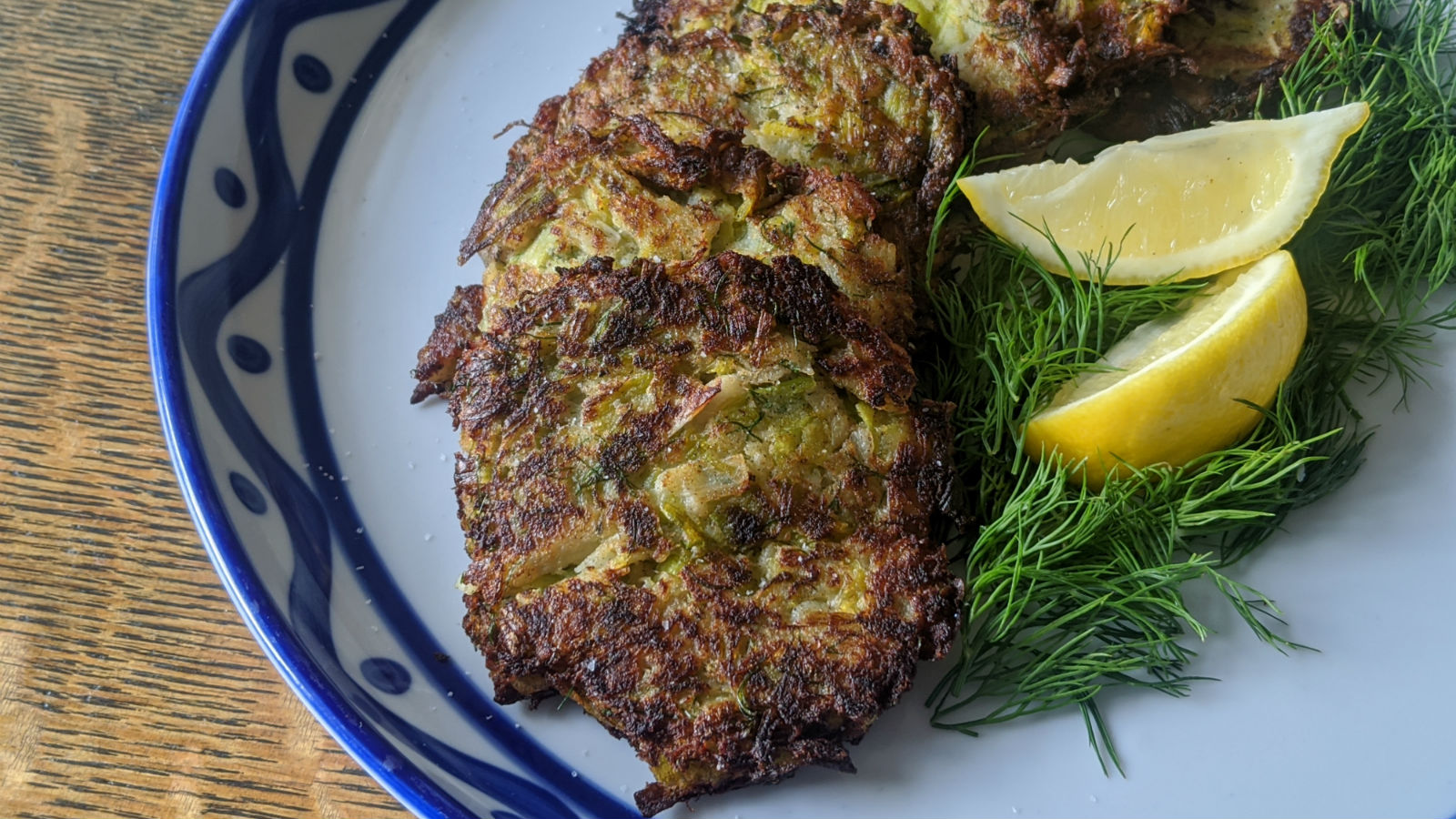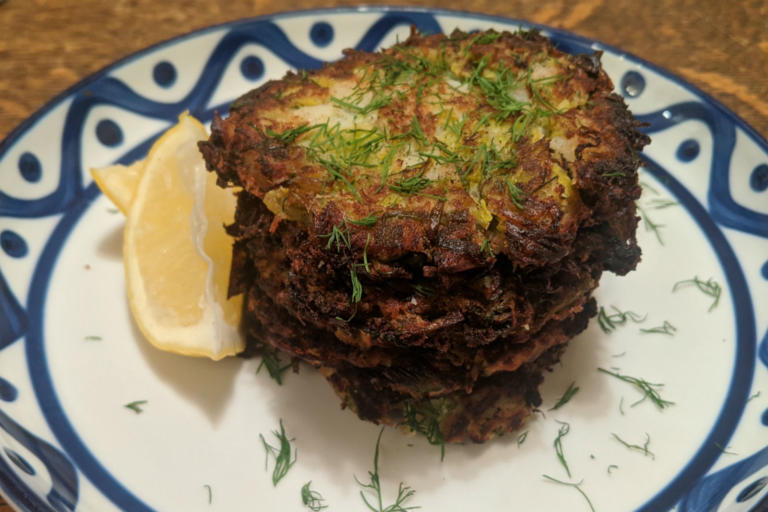Remember when the Israelites left Egypt and were wandering in the desert, kvetching about their daily fare of manna and more manna? The Torah tells us one of the foods they wept for was leeks, a soft-spoken member of the onion family.
Leeks, native to the eastern Mediterranean, were on the tables of the Egyptians and later the Romans, who sowed them as they swept across Europe.
Fast forward a thousand years, and leeks once again play a leading role in Jewish history as a favorite of the Sephardim, the Jews of Spain, who came to Iberia around 250 BCE with the Romans. While leeks appeared in many Sephardic dishes, Christians wouldn’t touch them, thinking them, along with onions and garlic, to be low class. Sadly, leeks were so identified with the Sephardim that they became one of the foods that betrayed Jews during the Inquisition. As we know from Inquisition testimony, being caught cooking with leeks led to torture, imprisonment, and worse.
When the Sephardim left Spain, they took their love of leeks with them. A large number of Sephardim found a safe haven and expanded leek repertoire in the Ottoman Empire, centered around modern-day Turkey. One of the dishes the Sephardim adopted was the popular fried leek patties, called keftes de prasa in Ladino. Fried in the requisite oil, keftes de prasa are a Sephardi favorite for Hanukkah.
The Nosher celebrates the traditions and recipes that have brought Jews together for centuries. Donate today to keep The Nosher's stories and recipes accessible to all.
Note: The cooked patties can be frozen after cooling completely. To reheat frozen patties, allow them to defrost enough that they can lay flat on a baking sheet, then warm in a 325°F oven for about 15 minutes.
Sephardi Leek Patties
A delicious latke alternative.
- Total Time: 35 minutes
- Yield: 4-6
Ingredients
- 6–8 leeks (about 2 lb)
- 1 large or 2 small russet potatoes (about ¾ lb)
- 1 egg, beaten
- 3 Tbsp chopped fresh dill or 3 tsp dried
- ½ tsp salt
- ¼ tsp ground black pepper
- ½ cup crumbled feta (optional)
- 4–6 Tbsp bread crumbs or matzah meal (can be gluten free)
- vegetable oil, for frying — I prefer avocado but any neutral oil works
- lemon wedges, for serving
Instructions
- Prepare the leeks: Cut off the root end and dark green top (save them for stock), and split the remaining white and light-green part down the middle, removing the tough outer layers. Slice the leeks into ½-inch-wide pieces. Place into a colander and rinse under cold running water, then set the colander into a large bowl filled with cool water. Use your hands to swish the leeks around in the water. Let the water settle a minute, then lift out the leeks. Empty the water, rinse the bowl, and repeat, washing the leeks until there is no dirt falling to the bottom of the bowl. Set aside to drain.
- Peel the potato and cut into 1-inch pieces. Steam the leeks and potato in a metal colander or steamer basket for about 15 minutes, until they are soft.
- In a large bowl, mash the potato and leeks with a fork until there are almost no lumps of potato. Let the mixture cool for a few minutes then add the eggs, dill, salt, pepper and feta, if using. Add enough bread crumbs or matzah meal to hold the mixture together.
- Add a thin layer of oil to a large frying pan and heat on medium until shimmering. Drop heaping tablespoons of batter into the oil and flatten gently with a spatula until they’re around 3 inches wide and about ¼ inch thick. Fry until browned, then very gently flip to cook the other side. Press down lightly after flipping to make sure each patty is flat to the pan. Remove and drain on paper towels.
- Repeat with remaining mixture, adding more oil as needed.
- Serve warm with lemon wedges.
Notes
The cooked patties can be frozen after cooling completely. To reheat frozen patties, allow them to defrost enough that they can lay flat on a baking sheet, then warm in a 325°F oven for about 15 minutes.
- Prep Time: 25 minutes
- Cook Time: 10 minutes
- Category: Holiday
- Method: Stovetop
- Cuisine: Sephardi





This is a slight variation of my family’s recipe, but I’m sure it’s as good.
I don’t use potatoes, and mince the leeks or use a food processor.
My Nana would make them and my dad would eat them boiling g hot from the fryer straight away. I was the same.
Thank you for the memories!
Thank you for the recipe of this Jewish meal.